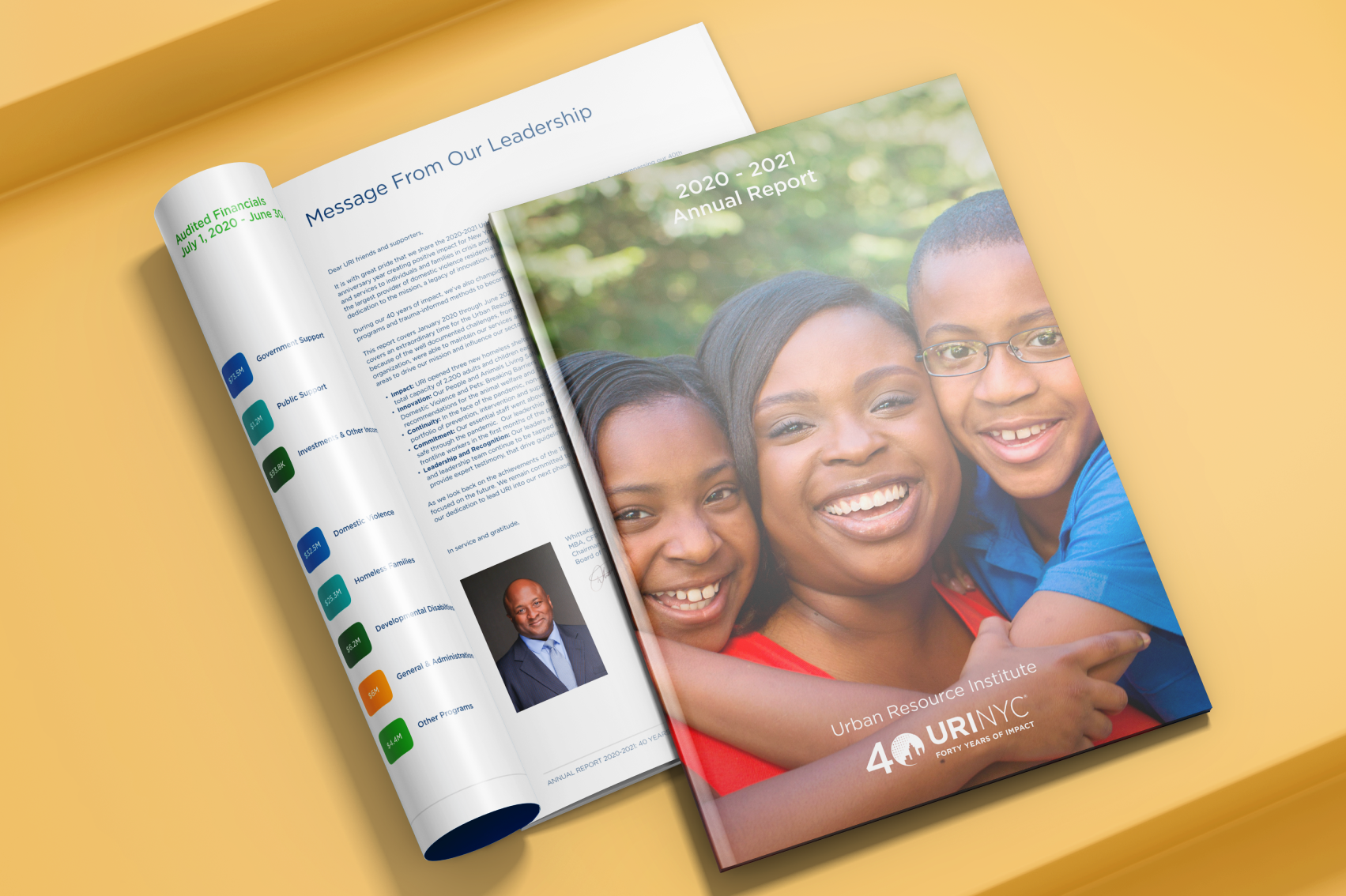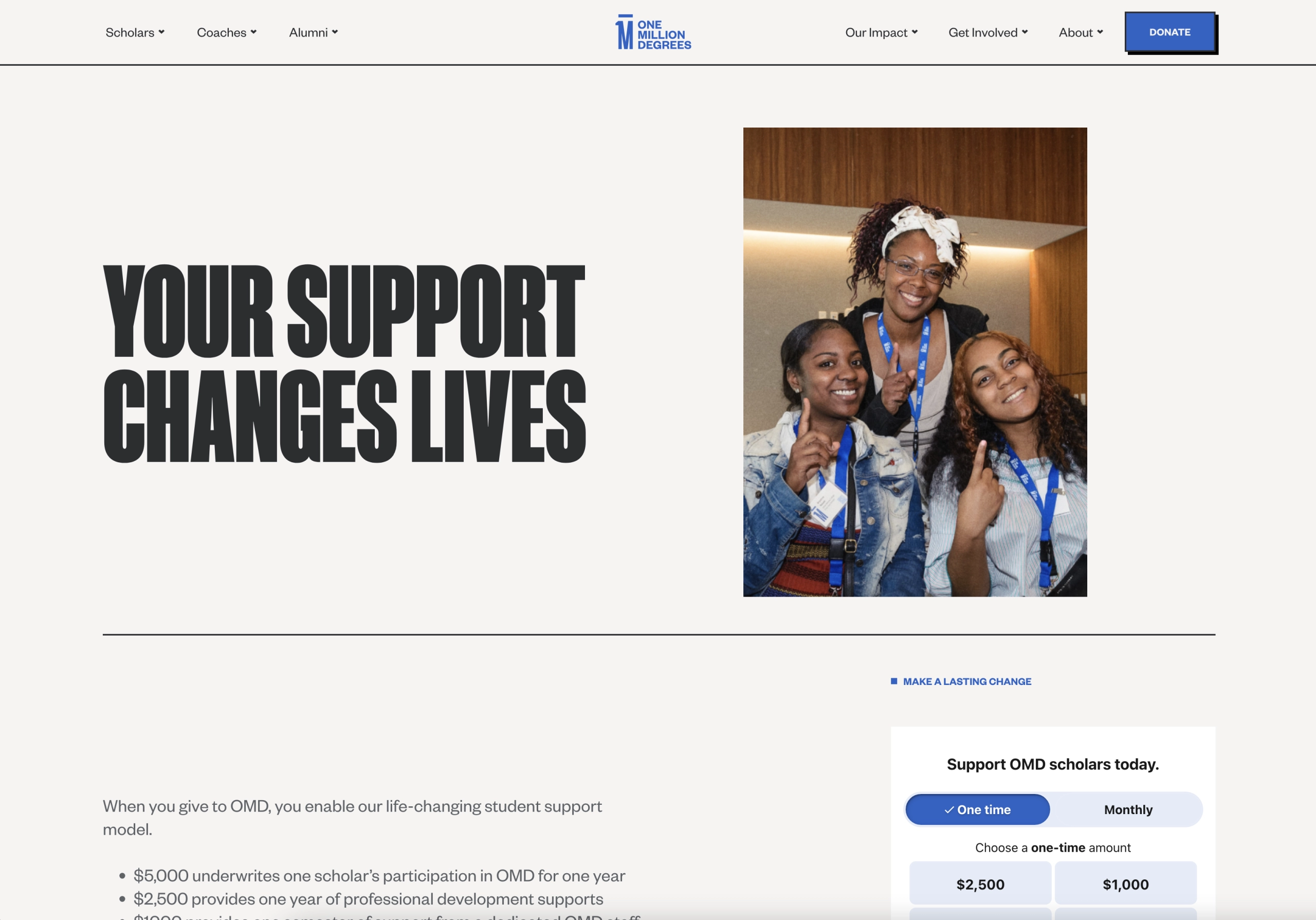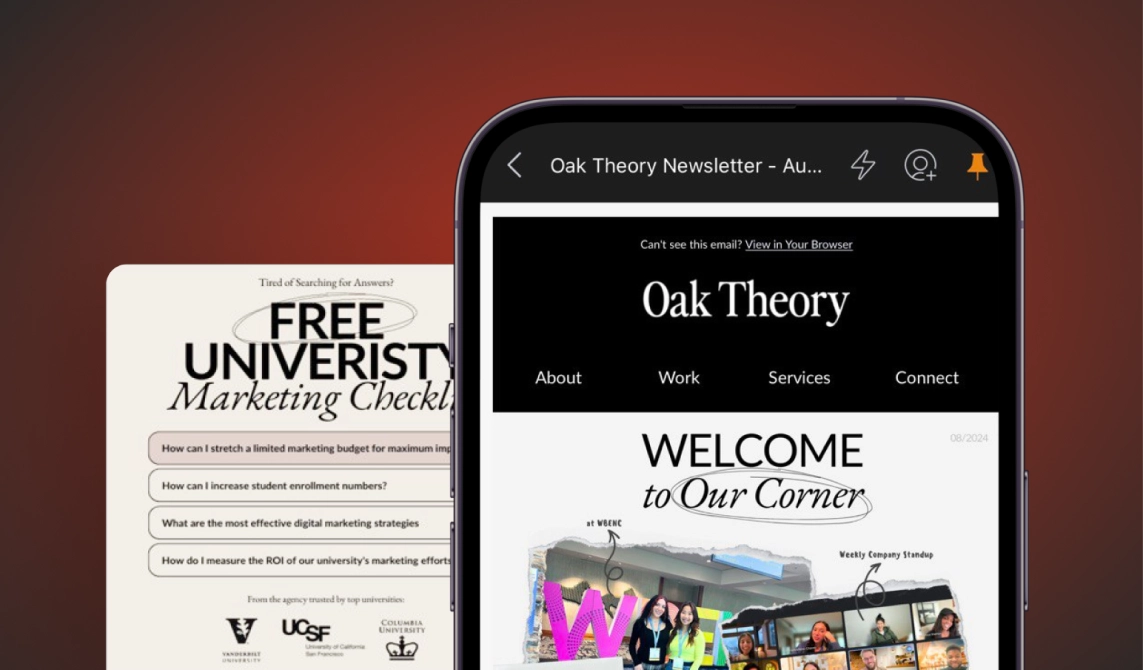Embracing Cultural Competence in Nonprofit Marketing
How do you make everyone feel seen, heard, and valued? As a diverse agency, we believe that any good brand communication starts with understanding.
The strength of any nonprofit lies in how deeply it connects with its audience. Engaging with diverse communities—each with its unique cultural references, language, and interests—requires more than just speaking. It’s about truly resonating. Authentic communication is key. If attempts to build rapport feel forced or lack sincerity, they can create distance instead of fostering connection.
This is why cultural competence is a transformative approach to nonprofit marketing strategies that truly live and breathe DE&I values. By prioritizing cultural competence, nonprofits can turn their communications into meaningful dialogues, ensuring their messages not only reach diverse audiences but plant seeds on a deeper level. Whether through nonprofit content marketing, nonprofit social media strategies, or nonprofit donor engagement, embracing cultural competence is essential for making a real, lasting impact.

Why Cultural Competence Matters in Nonprofit Marketing
Cultural competence involves understanding, respecting, and effectively interacting with people from different cultures. For nonprofits, this means recognizing the unique needs, values, and communication preferences of various communities. Perhaps unsurprisingly, a nonprofit’s ability to connect with diverse audiences can significantly impact its success in fundraising, donor engagement, and community outreach. However, when done wrong, it can also stifle these efforts, leading to missed opportunities and damaged trust.
At worst, nonprofits risk perpetuating stereotypes, accidentally diminishing the voices of those they aim to help, or even engaging in tokenism.
Studies consistently demonstrate the critical role of cultural competence in marketing. The Harvard Business Review underscores that businesses with a deep understanding of diverse cultures and consumer behaviors are better positioned to connect with a broader audience and drive successful marketing campaigns. Similarly, a research paper from Clayton State University highlights that culturally informed marketing strategies not only enhance consumer engagement but also foster stronger brand loyalty by addressing the nuanced preferences and values of different demographic groups.
By implementing culturally competent nonprofit digital marketing strategies, organizations can avoid the pitfalls of one-size-fits-all messaging and instead tailor their campaigns to resonate with specific groups.
Building a Diverse Team for Better Nonprofit Branding
A diverse team brings a wealth of perspectives, experiences, and insights that are invaluable for nonprofit branding. When team members come from different cultural backgrounds, they can offer unique viewpoints that help shape more inclusive and relatable messaging.
This diversity is particularly important in nonprofit content marketing, where storytelling is a powerful tool for connecting with audiences.
Nonprofit organizations’ copywriting can enhance their branding by showcasing the diverse voices within their team and the communities they serve. By highlighting stories from different cultural perspectives, nonprofits can create a more authentic and relatable brand image that appeals to a broader audience. When building an internal diverse team isn’t immediately possible, nonprofits can also collaborate with external diverse teams, ensuring that their campaigns are pitch-perfect.

Image Source: https://urinyc.org (made with ♥︎ by Oak Theory)
Implementing Nonprofit Social Media Strategies with Cultural Awareness
Social media is a critical channel for nonprofit outreach, and cultural competence is key to developing effective nonprofit social media strategies. Understanding the cultural nuances of different platforms and the preferences of various audiences can help nonprofits craft content that resonates.
Successful social media outreach hinges on cultural sensitivity; tailoring your content to reflect diverse audience preferences transforms engagement from superficial to substantial.
For instance, platforms like TikTok may resonate more with younger, multicultural audiences, while Facebook might be more popular among older demographics, including immigrant communities. Similarly, using culturally relevant content—such as bilingual posts or highlighting culturally significant events—can engage specific groups more effectively.
Enhancing Nonprofit Donor Engagement Through Cultural Competence
Donor engagement is a cornerstone of nonprofit success, and cultural competence plays a vital role in building strong relationships with donors. Understanding the cultural values and motivations of donors can help nonprofits create more personalized and meaningful interactions.
By understanding and aligning with traditions, nonprofits can create personalized messaging that resonates in a timely manner, leading to higher engagement rates and more successful fundraising campaigns.
For instance, nonprofit email marketing campaigns can be tailored to align with the cultural and religious practices of different donor segments. For Muslim donors, campaigns can be timed around significant periods like Ramadan, when charitable giving, known as Zakat, is a key religious obligation.

Image Source: https://onemilliondegrees.org/ (made with ♥︎ by Oak Theory)
Cultural Competence in Nonprofit Website Design and SEO
Nonprofit website design and nonprofit SEO are critical components of a nonprofit’s digital presence. A culturally competent approach to website design ensures that the site is accessible, inclusive, and appealing to diverse audiences; this includes considerations for language options, culturally relevant imagery, and user-friendly navigation.
Incorporating cultural competence into nonprofit SEO strategies can also enhance visibility and reach. By using culturally relevant keywords and optimizing content for different languages and regions, nonprofits can improve their search engine rankings and attract a broader audience.
Leveraging Nonprofit Storytelling and Video Marketing for Greater Impact
Nonprofit storytelling is a powerful tool for connecting with audiences on an emotional level. For example, a nonprofit working with immigrant communities might share personal stories from individuals who have successfully navigated the immigration process, highlighting their cultural backgrounds and unique challenges. But this, of course, needs to be handled with a lot of sensitivity.
By incorporating cultural competence into these storytelling efforts—such as using the community’s preferred language, respecting cultural norms, and showcasing relatable experiences—nonprofits can create more impactful narratives that resonate deeply with diverse communities, fostering empathy and support.
Video Source: Canva Academy on YouTube
Best Practices for Culturally Competent Nonprofit Marketing
To successfully implement culturally competent nonprofit marketing strategies, consider the following best practices:
1. Build a diverse team:
Ensure that your team reflects the diversity of the communities you serve. A diverse team brings valuable insights and perspectives that can enhance your marketing efforts.
2. Conduct cultural research:
Invest time in understanding the cultural values, preferences, and communication styles of your target audiences. This research will inform your marketing strategies and help you create more relevant and effective campaigns.
3. Tailor your messaging:
Avoid a one-size-fits-all approach. Customize your messaging to reflect the unique needs and interests of different cultural groups.
4. Use inclusive language and imagery:
Ensure that your language and imagery are inclusive and representative of diverse communities. This includes avoiding stereotypes and using visuals that reflect the diversity of your audience.
5. Engage with cultural advisors:
Collaborate with cultural advisors or community leaders to gain insights and feedback on your marketing efforts. Their input can help you create more culturally competent and impactful campaigns.
Reaching More Communities with Cultural Competence
Cultural competence is not just an add-on; it’s a necessity for nonprofits aiming to reach and engage diverse communities. By building a diverse team, tailoring nonprofit communications, and implementing culturally competent marketing strategies, nonprofits can create more meaningful connections, enhance donor engagement, and ultimately, achieve greater success in their missions.
To ensure your communications are on-brand and truly resonate with every audience, get in touch with us. As a digital agency with a team representing diverse cultures, creeds, and religions from all corners of the globe, we are uniquely equipped to deliver authentic, impactful messages that reflect the richness of the communities you serve.


